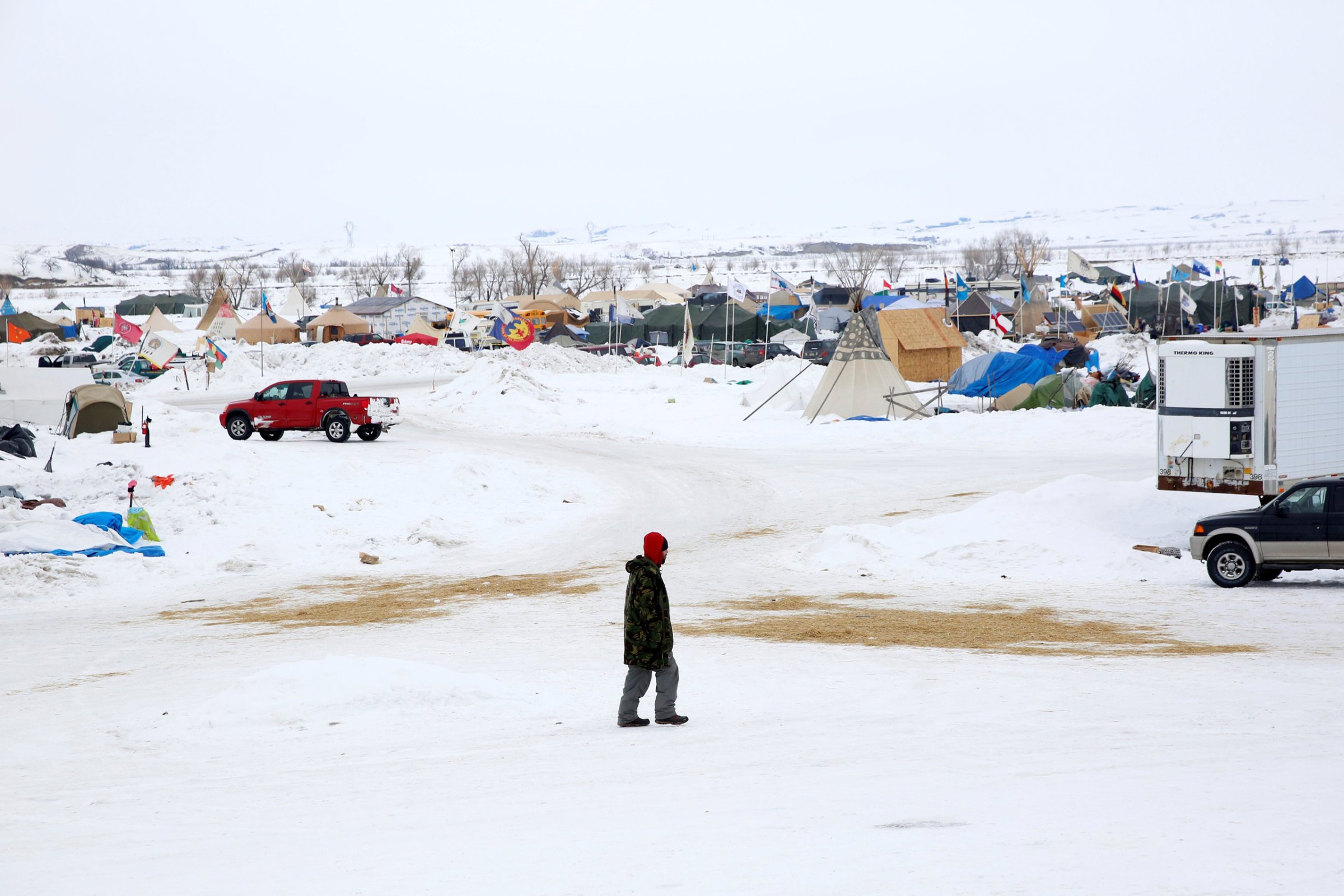
Environmental activists vowed to redouble their fight against the Dakota Access and the Keystone XL pipelines after President Donald Trump signed presidential memoranda aimed at quickly approving the projects.
Mass protests and concerted legal efforts will be central to opposition to the oil and gas infrastructure projects, environmental leaders said in the hours after the announcement. “We will fight it with everything we got. We will be in the courts and we will be in the streets,” says Bill McKibben, founder of the climate group 350.org. “We will fight it and fight it with a certain amount of hope that we will prevail in the end.”
The exact mechanism that Trump used to try to expedite the projects remains unclear and environmental groups said they would not know exactly what legal action they would take until they analyzed the decision. Supporters of the Dakota Access Pipeline — developed by Energy Transfer Partners — have suggested that Trump direct the Army Corps of Engineers to lift a temporary halt to the project issued by the Obama administration. That could clear the way for the company behind the pipeline to begin construction almost immediately.
Read More: Donald Trump’s Victory Could Mean Disaster for the Planet
But activists who succeeded in slowing the Dakota Access Pipeline last year suggested on Tuesday that they would mobilize regardless of the legal nature of Trump’s executive action. “Our resistance is stronger than ever before,” says Dallas Goldtooth of the Indigenous Environmental Network, adding that advancing the project will prompt “massive demonstrations and civil disobedience.”
Still, the path for permanently stopping the Dakota Access project remains unclear. The project is more than 95% complete, with the small region near the Standing Rock Sioux reservation remaining unconstructed, and local law enforcement has shown no hesitation in shutting down protests.
Environmentalists were able to articulate a much clearer path to halting the Keystone XL pipeline. The details of Trump’s executive action remain unclear, but reports have circulated in recent days that the president would eliminate a measure created by President Lyndon Johnson that requires the State Department to approve pipelines that cross international borders. That would allow the pipeline to proceed without a lengthy review process to reverse the assessment of Obama’s State Department, which led to the project’s demise in 2015.
Read More: Obama Official Tells Scientists to Stand Up to Donald Trump
Still, Keystone XL has not received the necessary state permits to proceed and environmentalists say stopping its approval in Nebraska could be key to halting the overall project. Landowners there have refused to give up their land for the project and TransCanada — the company behind Keystone — would need to resort to using eminent domain. Various bureaucratic requirements mean that the company could not use eminent domain until fall of this year, according to Jane Kleb, president of the Bold Alliance who works on the ground in Nebraska.
And, of course, activists are prepared to mobilize with the same mass protests that defined the opposition to Keystone before Obama rejected it. Part of that effort will be a public relations battle to explain the facts of the project (for instance, it will create only a few dozen jobs in the U.S., inconsistent with Trump’s promise).
But part of the effort will also be the PR appeal of mass public opposition. “I have a pair of handcuffs that are sitting on my bookshelf,” Sierra Club Executive Director Michael Brune told TIME last year. “They may need to be used again.”
Correction: The original version of this story misstated the nature of President Trump’s executive action. It involved presidential memoranda, not executive orders.
More Must-Reads from TIME
- Donald Trump Is TIME's 2024 Person of the Year
- Why We Chose Trump as Person of the Year
- Is Intermittent Fasting Good or Bad for You?
- The 100 Must-Read Books of 2024
- The 20 Best Christmas TV Episodes
- Column: If Optimism Feels Ridiculous Now, Try Hope
- The Future of Climate Action Is Trade Policy
- Merle Bombardieri Is Helping People Make the Baby Decision
Write to Justin Worland at justin.worland@time.com